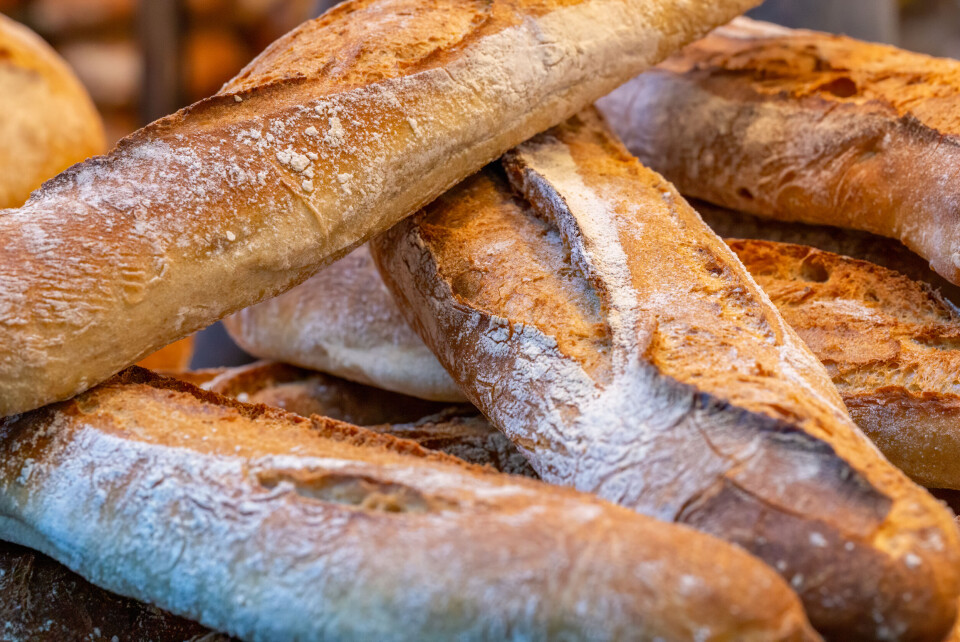-
France’s population growth concentrated along Atlantic and Mediterranean coasts
State statistics agency Insee also identified the five regions north of the Loire, excluding Brittany and Loire-Atlantique, as areas where the population has remained the same or is shrinking
-
Shop donations: Pays de la Loire and Corsica are France’s most generous regions
Almost €15 million was raised in 2025 via ‘round up’ donations at checkouts
-
Train passengers in Occitanie to be reimbursed over frequent delays and cancellations
See eligibility conditions and find out how refunds will be issued
French baguette-baking considered for Unesco intangible heritage list
The practice is one of 56 customs and traditions from around the world in the running. French and Belgian funfair culture is also being considered

French baguettes are among 56 cultural elements from around the world that are being considered for Unesco intangible heritage status.
The United Nations’ cultural agency is meeting this week in Morocco to discuss proposed additions to the list of protected culinary techniques, artistic practices and community traditions.
Unesco will begin tweeting its decisions this afternoon (November 29).
Other entrants include Tunisian harissa, Azerbaijani or Turkish tea traditions, the Central Asian lute of Iran, Tajikistan and Afghanistan, Cuban white rum and Algeria’s raï folk music, which dates back to the 1920s.
Also being considered are the fêtes foraines (travelling funfairs) of France and Belgium and the culture surrounding them.
If France’s baguettes were to secure a place within the intangible heritage list, it would not be the bread itself but rather the “artisanal savoir-faire of the culture surrounding the baguette,” which would be honoured.
Similarly, it would not be Cuban rum, but rather the techniques which go into making it, which would be recognised, for example.
The president of the French Confédération nationale de la boulangerie-pâtisserie française, Dominique Anract, will be the representative of baguette-making charged with explaining the value of the practice to Unesco.
He told France Inter that he will “highlight the sharing aspect” of the baguette, saying: “Sometimes you see an elderly person going to the boulangerie to maintain one of their last social interactions. There is no equivalent to going to buy your bread.”
Mr Anract will also highlight the artisanal knowledge that goes into making baguettes, the “long kneading process, the long fermentation process, the hand moulding and the baking. There is flour, water, salt and yeast, that is all.”
He will have two minutes to plead the baguette’s case in front of the Unesco jury, and will argue that without protection, the baguette risks becoming “an industrial product made by machines”.
Honouring it could “lend an international dimension to the baguette [...] It could therefore show young people that [being a baker] is a wonderful career.”
What is intangible heritage?
Unesco’s intangible heritage list honours “living culture” in which “communities” are represented rather than objects, Unesco’s Ernesto Ottone told AFP.
In this way, the intangible heritage can belong simultaneously to several countries.
The Convention for the Safeguarding of the Intangible Cultural Heritage was adopted in 2003, and is dedicated to safeguarding these “human treasures”. There are currently 530 practices on the list, including 72 needing urgent protection.
"Intangible cultural heritage, transmitted from generation to generation, is constantly recreated by communities and groups in response to their environment, their interaction with nature and their history, and provides them with a sense of identity and continuity, thus promoting respect for cultural diversity and human creativity," the convention states.
Four of the practices and culinary traditions in the running for this year’s selection are said to be in need of urgent protection, including pottery created by the Cham people of Vietnam.
Read also
Louvre sister museum in old French mining city brings culture to all
French love of comic books is writ large on Angoulême walls
Cap Fréhel coast in Brittany wins €1m landscaping restoration prize
























